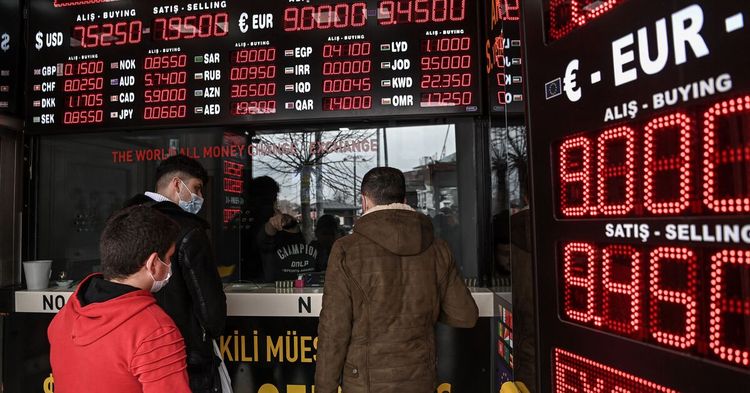Turkey's Central Bank hikes interest rates to 17.5%

ANKARA — Turkey’s Central Bank on Thursday hiked interest rates by 250 basis points from 15% to 17.5%, a lower-than-expected rise that led to the Turkish lira sinking to new lows.
It’s the second rate hike in a row since an overhaul of the country’s economic management team that pledged rational and tighter monetary policies. In a statement following its monthly monetary policy committee meeting, the bank reiterated its commitment to tighter monetary policy.
“The committee decided to continue the monetary tightening process in order to establish the disinflation course as soon as possible, to anchor inflation expectations and to control the deterioration in pricing behavior,” the committee’s statement said.
“In our country, recent indicators point to continuation of the increase in the underlying trend of inflation. The strong course of domestic demand, cost pressures stemming from wages and exchange rates and the stickiness of services inflation have been the main drivers,” it continued.
The hike was lower than the analysts' expectations, many of whom advocate for a steeper hike. Earlier this week, the Turkish lira tumbled to its weakest value against the dollar on record after polls indicated that the bank would deliver a smaller-than-expected rate hike in Thursday’s meeting. A Reuters poll this week put the expectation of a hike up at 20%, according to the median estimate of 23 economists.
The lower-than-estimated hike weakened the lira further. As of mid-afternoon Istanbul time on Thursday, there were 26.93 liras to the dollar, increasing 0.47%.
The raise marks the second in a row by the bank after it began hiking policy rates last month under its newly appointed Gov. Hafize Gaye Erkan, a former US banking executive. The move to hike rates marks a U-turn from Turkish President Recep Tayyip Erdogan's economic policy that goes against conventional wisdom that higher interest rates help reduce inflation.
Lower-than-expected rate hikes signal that the shift to tighter monetary policies will be gradual with many believing that the government might be avoiding a radical policy shift ahead of local elections planned to be held in March next year. After Erdogan's victory in the May general election, the Turkish president and his ruling Justice and Development Party is now eyeing to regain control of the country's major cities. A main target is Istanbul's mayoral office, from which Erdogan's journey to the most powerful post in the country began.
Under Erdogan’s influence, the bank slashed the country’s policy rates to 8.5% in a series of unorthodox interest rate cuts over the past months to boost economic growth at the expense of inflation and devaluation of the Turkish lira. The cuts fanned Turkey’s already high inflation to record levels, leading to a cost-of-living crisis. The annual inflation reached a 24-year high of 85.5% last October before easing to 38.2% in June, largely due to the favorable base effect. The cuts also sent the lira to record low levels, causing it to lose more than 30% of its value over the past year.
In a bid to prevent another currency shock in the lead-up to the May general elections, the central bank depleted its foreign reserves by channeling currency to the market through backchannel means, sending the country’s net foreign reserves below zero before the elections.
Raising the country's foreign reserves has been one of the top priorities of the new economic management team — led by Finance Minister Mehmet Simsek — as the country is facing one of its worst foreign currency crunches. This week, Erdogan visited Gulf monarchies in his first regional tour after his reelection, largely to draw foreign funds in a bid to ease the crunch. On Wednesday, during Erdogan's visit to the United Arab Emirates, Turkey and the UAE signed 13 separate cooperation deals in various fields worth more than $50 billion. His visit to Saudi Arabia on Monday also saw the signing of five deals including one between Turkey's leading drone manufacturer Baykar and the Saudi Defense Ministry. The total worth of the Saudi-Turkish deals has not been disclosed.
The bank on Thursday said, “Foreign direct investment, notable improvement in external financing conditions, continued increase in foreign exchange reserves.” Erdogan signaled that he was shifting from his unorthodox economy policy by appointing Erkan and Simsek as the new czar of economic management after his reelection. Simsek pledged to return to the rational ground in economic policies after he took office.
This is a breaking story and it has been updated since its initial publication.


















































